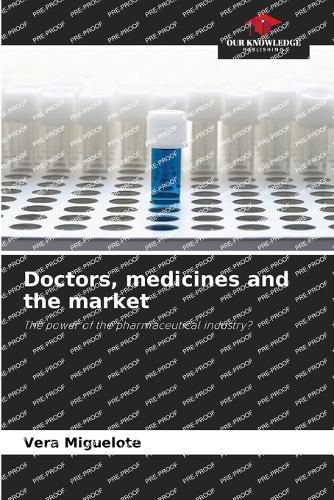Readings Newsletter
Become a Readings Member to make your shopping experience even easier.
Sign in or sign up for free!
You’re not far away from qualifying for FREE standard shipping within Australia
You’ve qualified for FREE standard shipping within Australia
The cart is loading…






In recent decades, due to significant economic and technological changes, medical discourse has become linked to economic development, transforming medicine into a territory dominated by capitalist and mercantilist forces. In this context, a powerful machinery has been set up in which the pharmaceutical industry has become linked to the knowledge industry, with the aim of funding research programmes and producing scientific knowledge. This work is based on the investigation of this role in funding clinical trials, based on the testimonies of four doctors, professors of medicine, who are co-participants in pharmaceutical industry projects. It aims to contribute to the critical and reflective capacity of prescribing doctors, both in relation to their professional practices and in assessing the quality of medical knowledge presented as new. It also provides data for understanding how this powerful mechanism limits the supposed social omnipotence of medicine, while at the same time colonising the medical profession. This is a relativisation of values that calls for a critical ethical review.
$9.00 standard shipping within Australia
FREE standard shipping within Australia for orders over $100.00
Express & International shipping calculated at checkout
In recent decades, due to significant economic and technological changes, medical discourse has become linked to economic development, transforming medicine into a territory dominated by capitalist and mercantilist forces. In this context, a powerful machinery has been set up in which the pharmaceutical industry has become linked to the knowledge industry, with the aim of funding research programmes and producing scientific knowledge. This work is based on the investigation of this role in funding clinical trials, based on the testimonies of four doctors, professors of medicine, who are co-participants in pharmaceutical industry projects. It aims to contribute to the critical and reflective capacity of prescribing doctors, both in relation to their professional practices and in assessing the quality of medical knowledge presented as new. It also provides data for understanding how this powerful mechanism limits the supposed social omnipotence of medicine, while at the same time colonising the medical profession. This is a relativisation of values that calls for a critical ethical review.